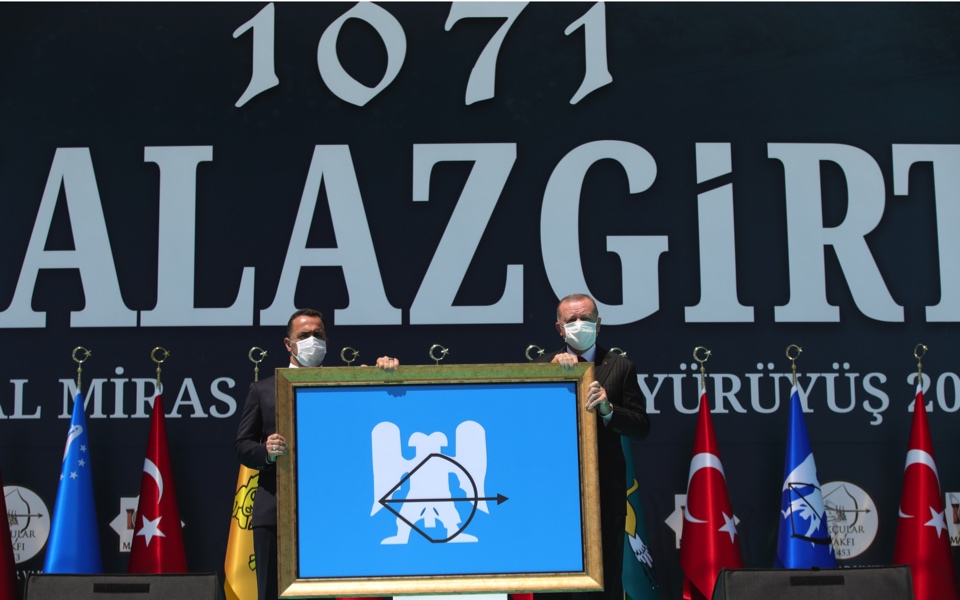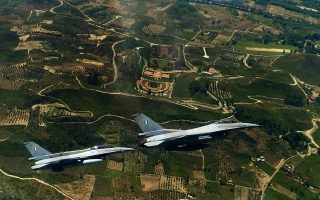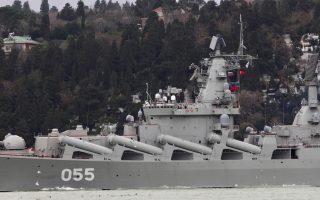Is Turkey’s East Mediterranean gamble a risk worth taking?

Looking back at 2019 it will no doubt be remembered as the year that Turkey upped the ante in the deep waters of the East Mediterranean by adopting and promoting a highly provocative, if not belligerent, stand. In what appears to be a well-thought-out plan, Ankara has over the years very consistently pegged its claims for hydrocarbon exploration in large swaths of the sea areas off Cyprus, Greece and lately Libya.
In February 2018, Turkish naval units succeeded in scaring away a drillship operated by Eni as it was getting ready to prospect for gas in Block 3 in the economic exclusion zone (EEZ) of the Republic of Cyprus. Then, in the spring of last year, the Fatih drillship, operated by Turkey's TPAO, carried out exploration work within the island’s EEZ west of Paphos. Thus Turkey has sent an unequivocally strong message that it is disputing Cyprus' EEZ. This message was further amplified last summer when yet another TPAO drillship carried out exploration in an offshore area east of Cyprus.
According to maps published by various Turkish government departments, Cyprus, with the exception of the Turkish-occupied northern part, is not entitled to an EEZ, with Turkey claiming control instead. In the same vein, Turkey has laid claim to half of the Aegean Sea and the area up to the eastern coast of Crete. If that wasn't enough, on November 13, Ankara took another bold step by encroaching on a vast area of Greece's sea zone east of Rhodes – i.e. from the 28th up until the 32nd meridian – by submitting detailed coordinates to the United Nations.
Building fast on this cunning move, Turkey surprised even its closest allies by announcing the signing on November 27 of a bilateral “security and military cooperation” memorandum with the besieged, but United Nations-recognized Government of National Accord (GNA) of Libya. Furthermore, the two countries signed an agreement establishing new maritime boundaries between them, clearly infringing on Greece’s territorial waters and EEZ and sparking an immediate outcry from Athens, which saw its sea zone violated again.
But Turkey's grandstanding in the East Mediterranean is totally in line with President Recep Tayyip Erdogan's neo-Ottoman aspirations and his “Blue Homeland” (Mavi Vatan) vision, whereby the mainland is surrounded by an ample territorial sea zone. Another important reason which explains Turkey's forceful behavior is its ongoing quest to discover and exploit much needed hydrocarbon resources.
With a constantly rising population, now exceeding 83 million, and even faster rising energy demand, Turkey, which imports almost 75 percent of its fuel, is desperately trying to reduce its energy dependence. Having been excluded from the oil-rich areas of Kirkuk and Mosul, following the demise of the Ottoman Empire after the First World War, Ankara is now eyeing the Levant, beneath whose waters some 2.0 trillion cubic meters of gas – considerably higher than Caspian gas reserves – have been discovered during the last decade, with Israel and Egypt already covering all their gas needs from indigenous production and with Cyprus and Lebanon soon to follow suit. With more deposits being confirmed every year, Turkey feels bitter at having been left out of what amounts to an energy bonanza.
Turkey's very imaginative, but highly contentious decision to ignore Greece's territorial waters and impinge on its EEZ has resulted in a fierce reaction from Athens, which has spared no effort to lodge bitter complaints with the UN and the European Council and also brief its Arab allies and Washington. Athens, which has repeatedly denounced Ankara's expansionist policies and gross violation of international maritime law, is now seeking some form of retribution by demanding European solidarity and sanctions (unlikely) against Turkey.
As Greece is now trying to develop its by no means insignificant hydrocarbon resources in offshore areas in the Ionian and south of Crete, and has signed concession agreements to that effect with major oil companies, including ExxonMobil, Total and Repsol, Turkey's latest action to openly challenge Greece's rights in its undeclared, yet effective EEZ is posing an existential threat. According to senior EC officials in Brussels, the sea blocks which have been granted for exploration were delineated in accordance with the provisions of the United Nations Convention for the Law of the Sea (UNCLOS) and published, along with maps, in early 2015 in the official journal of the European Union, together with the announcement for the second international oil round.
As Erdogan is now contemplating his next move on the Mediterranean chessboard, he is faced with mounting criticism at home and abroad, from both foes and allies, who are fearful of Turkey’s involvement in a prolonged and uncontrolled military conflict in North Africa.
Should Greece decide to defend its maritime zone and protect future offshore drilling operations, most likely aided by Israel and Egypt, with whom the country has close defense pacts, and with US consent on account of the strong American naval and air presence on Crete, the game for Turkey could take a turn for the worse as it will find itself cornered. However, given the high appeal that such moves have on President Erdogan's wide electoral base and the rich proceeds that offshore hydrocarbon deposits promise, many in Ankara believe that the risk is worth taking.
Costis Stambolis is the chairman and executive director of the Institute of Energy for Southeast Europe (IENE). The views expressed in this article do not necessarily represent those of IENE.





